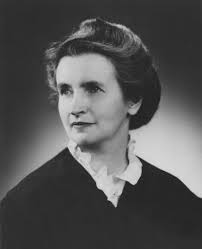A ceremony scheduled for 11 a.m. on Monday, September 16th, at the Copiah County Courthouse in Hazlehurst will commemorate the life and service of Burnita Shelton Matthews, a Copiah County native who was the nation’s first woman to serve as a federal trial court judge.
President Harry S. Truman appointed Matthews as a Judge of the U.S. District Court for the District of Columbia on Oct. 21, 1949. It was a recess appointment to a newly created seat on the court. President Truman nominated Matthews to the same position on Jan. 5, 1950. Judge Matthews was confirmed by the U.S. Senate on April 4, 1950, and received her commission on April 7, 1950.

Judge Royce C. Lamberth, former Chief United States District Judge for the District of Columbia, will be the keynote speaker at the Sept. 16 ceremony. Judge Lamberth knew Judge Matthews while she served as a senior status judge.
Circuit Judge Tomika Harris-Irving of Mississippi’s 22nd Circuit District will open the ceremony with a welcome. Chancellor Joseph Durr will introduce Judge Lamberth.
One hundred years ago, Matthews was in the thick of the fight for women’s rights. She joined the National Woman’s Party and did research regarding state laws that disenfranchised women. On weekends, she participated in pickets outside the White House as women sought the right to vote. The National Woman’s Party was a leading force for passage of the Nineteenth Amendment, which in 1920 granted women the right to vote. Matthews served as counsel to the National Woman’s Party 1921-1934.
The ceremony in Hazlehurst is being held 100 years after Matthews graduated from law school. She earned an LL.B in 1919 from the National University School of Law, now George Washington University Law School, and a masters in patent law from the National University School of Law in 1920. Matthews was in private law practice in Washington, D.C., 1920-1949. She distinguished herself in real estate transactions. She taught law at the former Washington College of Law 1933-1939 and 1942-1948.
Judge Matthews was the third woman in the nation to serve at any level of the federal judiciary. In 1928, President Calvin Coolidge nominated Genevieve Rose Cline of Ohio to the U.S. Customs Court, now known as the Court of International Trade. In 1934, President Franklin Delano Roosevelt named Judge Florence Allen of Ohio to the U.S. Court of Appeals for the Sixth Circuit.
Copiah County Chancery Clerk Steve Amos, who spearheaded the effort to organize the ceremony, said Matthews’ career “is one of the American dreams. Her father didn’t want her to be a lawyer.”
Matthews grew up around the law, frequenting the courthouse. Her father, Burnell Shelton, served as chancery clerk and tax collector of Copiah County. He wanted her to pursue studies in music.
Matthews studied voice and piano at the Conservatory of Music in Cincinnati, Ohio. She taught music in Texas, Georgia, and Fayette, Mississippi. In 1917, she married Percy Matthews, whom she had known since high school. Shortly after their marriage, he enlisted for service in World War I. She moved to Washington, D.C., and got a job as a clerk at the Veterans Administration so that she could attend law school at night. Her husband, who earned a law degree before she did, became a career military judge of the Army Judge Advocate General Corps.
U.S. Supreme Court Justice Ruth Bader Ginsburg in remarks to CUNY School of Law on March 11, 2004, described Matthews’ early employment prospects: “When she graduated from law school, no law firm in the District of Columbia would hire her, and even the Veterans Administration, where she had diligently worked while a law student, declined to consider her for a position as a lawyer, simply and solely because she was a woman. Burnita wasted no time on anger, resentment, or self-pity.” Matthews formed her own law firm and was successful.
Judge Matthews took senior status from the federal trial bench on March 1, 1968, but continued to hear cases for 10 more years as a senior status trial judge. She also sat on appellate panels of the United States Court of Appeals for the District of Columbia Circuit and heard cases before the United States Court of Customs and Patent Appeals.
She died on April 25, 1988, in Washington. She is buried in Copiah County.
President Ronald Reagan said of Judge Matthews in a 1984 commendation: “[I]n furthering the administration of justice. . .[Judge Matthews’] diligence, distinguished efforts, and pioneering spirit serve as an inspiration to all.”







